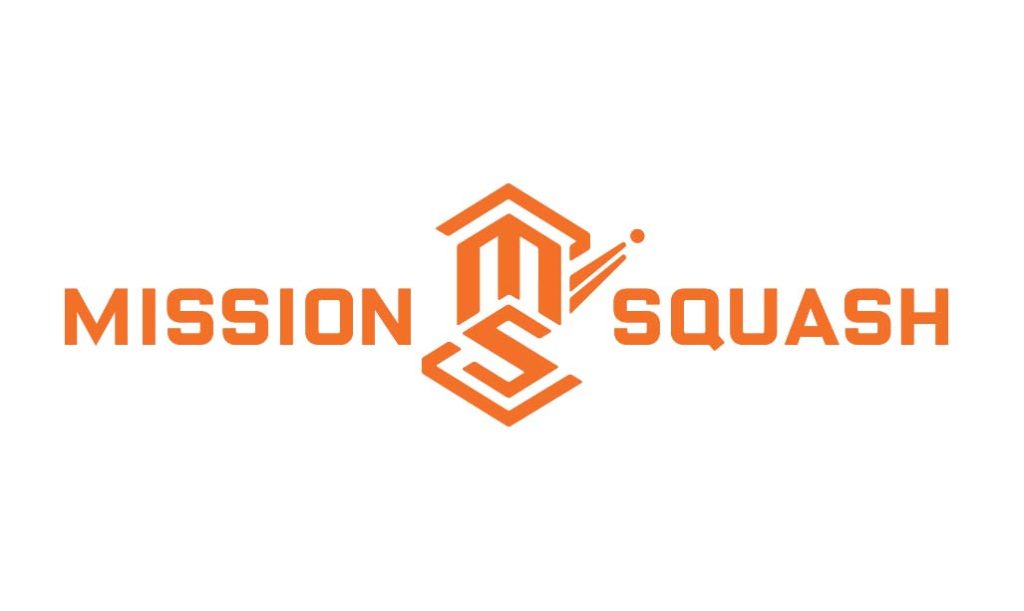
Mission Squash–the only squash facility in the country located in a public school building in one of the nation’s fastest growing squash communities, Houston, Texas–has become the eleventh US Squash Community Affiliate Network member facility.
Mission Squash was founded as a non-profit in 2011 by Alistair Barnes, who wished to provide equal opportunity for attaining the highest quality of life among Houston’s low-income communities. For the first few years, the program was held at the Downtown Club at the MET, and its staff was composed of part-time employees and volunteers, and as many students that could fit into a fifteen-passenger van. In 2015, after meeting with the former principal of Hogg Middle School, an HISD middle school with an 81% disadvantaged student population, Barnes identified the prime location for housing its academics program, road to and through college program, and squash and wellness and fitness programming: an out-of-use auxiliary gym to be converted into a classroom with three squash courts. Mission Squash is now entering just its second year of full growth with students that entered the program in sixth grade graduating high school–including its first two graduates that will play college squash this coming season. This fall, Mission Squash rolled out new family programming introducing the families of enrolled students to the sport.
Mission Squash is Houston’s only non-profit squash organization offering free services to low-income families. The current structure has capacity to work with sixty students. The program aims harness the sport’s rapid growth by expanding into a new stand alone facility within the next five years, which would serve up to 300 families and the greater Houston squash community.
“We have a model now that works well for the entire squash community in Houston,” said Luna Rey, Mission Squash Executive Director. “That’s what so important about these community initiatives, that every community is different and the needs of that community are different. We have a model that is working well and now we want to be able to expand and serve even more people. When I think about the community squash model and the areas that are part of the network, there’s a big focus on equity and access, and we’ve been working on equity, but now we want to be doing more with access and make sure as many people as possible who want to learn about the sport or are interested in our educational and recreational resources have it available.”
Houston is one of the fastest growing squash communities in the country. Last year, the Houston Squash Club celebrated the opening of its ten-court facility, adding to the city’s Downtown Club at the MET and Life Time Fitness. The region’s growth has opened the door to larger junior, adult and professional events becoming viable in the market. In January, the Houston Squash Club hosted the state’s first ever PSA Gold Tournament, the Houston Open. Later that month, Houston–along with Atlanta–was one of the first cities to organize a hybrid high school squash team to compete in the National Interscholastic Team Championships, and won both the boys and girls division one titles.
“We’re seeing more and more people picking up the sport,” Rey said. “It’s a really interesting landscape for squash, and is also one of the most diverse areas in the country ethnically, socioeconomically and religiously. It’s a beautifully diverse squash community and we’re seeing more people move here from all over the world who love the sport and want to share it with even more people. We do a lot of work with our existing squash facilities in Houston to have a more integrated squash model and rely on that collaboration to grow.”
As a Community Affiliate, Mission Squash joins the T Squash Academy in Cincinnati, the SL Green StreetSquash Center in Harlem, MetroSquash in Chicago, Portland Community Squash in Maine, Atlanta Community Squash, Access Youth Academy in San Diego, Urban Squash Cleveland, Virginia Squash and the Arlen Specter US Squash Center in Philadelphia
“I’m really excited for the shared knowledge and resources of the Community Affiliate Network,” Rey added. “We’re looking forward to learning from and engaging with the national community. We’re interested to find out what has worked and what hasn’t in a wide array of programs, and what could work in Houston. What are shared challenges that we’re all facing and how do we address them? And how can we support each other? During the pandemic we learned how important community is and how valuable having dialogue is, and now we’re ready to be a part of this national conversation.”
Learn more about Mission Squash at missionsquash.org.
No matter where you play squash–outdoor courts, universities, independent schools, SEA facilities, community centers, or commercial courts–if your program has a non-profit element and you are committed to building an inclusive community, learn more about joining the Community Affiliate Network.












